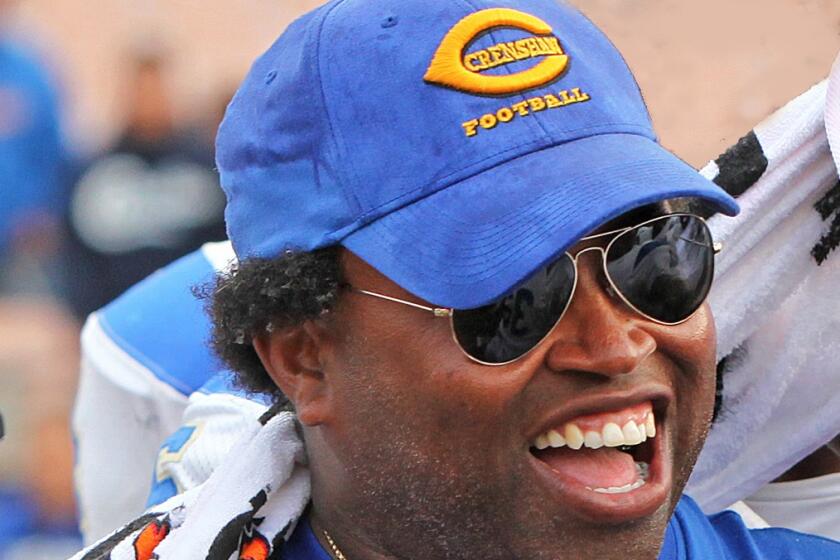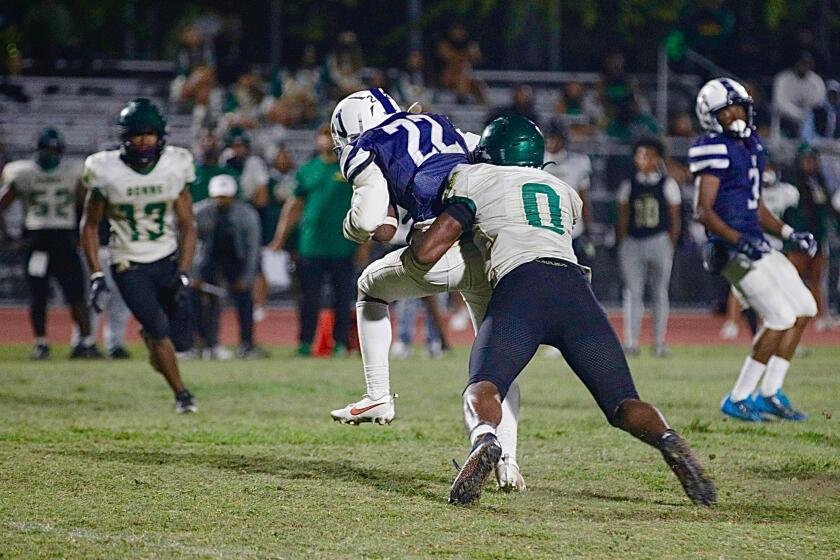Did L.A.âs Pursuit of Event Go Too Far? : Finances: Competitor calls cityâs bid for Super Bowl âunconscionable.â Some question the expense when there are other needs in the area.
In wooing Super Bowl XXVII to the Rose Bowl, the city of Los Angeles set new standards that illustrate just how far municipalities are willing to go in the ever-escalating scramble for prestigious sporting events.
Dallas Cowboys owner Jerry Jones said he was âoverwhelmedâ by the cityâs bid, unveiled in 1991 at NFL meetings in Hawaii. Philadelphia Eagles owner Norman Braman called it a case of âL.A. leaving no stone unturned. It was a devastating package.â
And it was so extravagant that some owners declined a few of the weekâs freebies, which include:
* Up to $225,000 in game-day expenses for the 28 NFL team owners.
* Free helicopter use for each owner.
* Free hotels, free limousines, free training and party sites.
* Free use of refurbished Rose Bowl sky boxes.
* Free admission to area amusement parks and museums.
Orchestrated by the Los Angeles Sports Council, the bid has prompted some competitors to observe that the city pushed the pursuit of the Super Bowl to its wildest point. Wes Pratt, a member of the San Diego contingent that competed for todayâs event, called the L.A. package âunconscionableâ and said it âseriously upped the anteâ for future demands.
But David Simon, president of the sports council, emphasizes that ânot a pennyâ of public money was used to finance Super Bowl XXVII or to pay for its incentives.
The cost is being financed primarily by the sale of 2,500 VIP seating packages, ranging from $995 to $10,000 per person. Corporate sponsors also are helping pay for the incentives.
Simon said Los Angeles was merely following the tendency to give, give, give that Detroit, Minnesota and other cities had shown in nabbing previous Super Bowls.
Still, some criticism of the excesses lingers.
âIt bothers me when large numbers of American children go to bed hungry each night and people are hopping the Concorde across the Atlantic,â said the Rev. Cecil Murray, pastor of the First African Methodist Episcopal Church in Los Angeles. âIn an artificial environment, people may act artificially, but when the ball ends--and it has with this economy--do you act as if youâre still at the ball, or are you grappling with reality?â
Because Los Angelesâ bid was made in March, 1991, Murray said he is willing to forgive its excesses--so long as it doesnât happen again.
UC Berkeley sociologist Harry Edwards who is also a counselor for the San Francisco 49ers, said the corporate worldâs commitment to Los Angeles and other host cities will be measured long after the game is over.
âThose helicopters cost money,â he said. âThat $225,000 in expenses has to come from somewhere. So why is it that every time somebody comes up with a plan to add an additional math class at a local school or keep a gym open on weekends, no money can be found for even 10% of that cost?â
Even Rick Cole, the mayor of Pasadena, said: âI have to separate how I feel personally from how I feel as mayor,â Cole said. âPersonally, I see the game as a holdover from the excesses of the 1980s . . . to have this kind of extravagance.â
But Simon said the benefits of hosting the Super Bowl far outweigh the costs. For one thing, it will generate more than $150 million in spending.
âWe need this game, not for the economic impact or even the uplift in image. We need it for its ability to take over an entire community, to unify L.A.,â Simon said.
More to Read
Go beyond the scoreboard
Get the latest on L.A.'s teams in the daily Sports Report newsletter.
You may occasionally receive promotional content from the Los Angeles Times.










